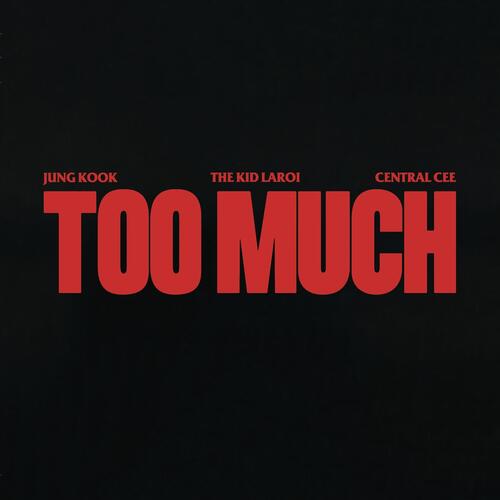The Price Of A Watch: How Much Is Too Much?

Table of Contents
Understanding the Factors Affecting Watch Prices
Several key elements contribute to the price of a watch, impacting the final cost significantly. Let's examine the most important factors:
Brand Recognition and Prestige
The name on the dial dramatically influences a watch's price. Luxury brands like Rolex, Patek Philippe, and Audemars Piguet command premium prices due to their established heritage, unparalleled craftsmanship, and effective marketing. These brands represent more than just timekeeping; they are symbols of status and success. Their exclusivity and long-standing reputation contribute to the high value associated with their timepieces.
- Rolex: Known for its iconic designs and robust construction, Rolex watches typically range from several thousand to tens of thousands of dollars.
- Patek Philippe: A pinnacle of haute horlogerie, Patek Philippe watches can cost hundreds of thousands, even millions of dollars, for highly complicated models.
- Audemars Piguet: Celebrated for its Royal Oak and other sporty luxury designs, Audemars Piguet watches usually fall in the tens of thousands of dollars range.
Materials and Construction
The materials used in a watch's construction significantly impact its price. Precious metals like gold and platinum substantially increase the cost, while the type of steel (stainless steel, titanium, etc.) also plays a role. The presence of gemstones, such as diamonds or sapphires, further elevates the price.
- Precious Metals: A gold watch will be considerably more expensive than a stainless steel watch due to the inherent value of the gold. Platinum is even more costly than gold.
- Steel Variations: Titanium, known for its lightness and strength, is generally more expensive than standard stainless steel.
- Gemstones: The carat weight and quality of gemstones like diamonds and sapphires directly impact the watch's overall price. A watch studded with high-quality diamonds can command a significantly higher price than a similar watch without gemstones.
Movement Type and Complications
The type of movement—quartz or mechanical—and the presence of complications are major price determinants. Mechanical movements, especially those with intricate hand-finishing, are far more expensive than quartz movements due to their complexity and craftsmanship. Complications like chronographs, moon phase displays, and tourbillons add substantial cost.
- Quartz vs. Mechanical: A simple quartz watch might cost a few hundred dollars, while an entry-level mechanical watch can start at a thousand and quickly escalate in price depending on the brand and features.
- Complications: A chronograph adds functionality and cost. A tourbillon, a highly complex mechanism designed to enhance accuracy, can dramatically increase the price of a watch. The more complications, the higher the price.
Determining Your Personal Budget for a Watch
Before browsing the vast world of watches, it's crucial to establish a realistic budget.
Defining Your Needs and Wants
Consider your lifestyle and how you'll use the watch. Do you need a rugged, waterproof sports watch, or a sophisticated dress watch? Identify essential features versus desirable ones. Creating a budget based on your financial capabilities is paramount.
- Questions to Ask:
- What will I primarily use this watch for?
- What features are absolutely necessary?
- What features would I like, but can live without?
- What is my maximum comfortable spending limit?
Assessing Value vs. Price
Remember, price doesn't always equate to value. Consider resale value and the watch's longevity. A well-maintained, high-quality watch can retain its value better than a cheaply made one. Thorough research is vital to finding value for your money.
- Tips for Finding Value:
- Read reviews and compare prices from multiple sources.
- Consider the brand's reputation and history.
- Look at the materials and movement quality.
Considering Pre-Owned Watches
Buying a pre-owned watch offers significant cost savings. However, authentication and condition are crucial considerations. Purchase from reputable dealers with robust authentication processes to avoid potential problems.
- Pros of Pre-Owned Watches:
- Significant cost savings compared to new watches.
- Opportunity to own a luxury watch at a more accessible price point.
- Cons of Pre-Owned Watches:
- Risk of purchasing a counterfeit or damaged watch.
- Need to verify authenticity and condition carefully.
Knowing When You’re Paying Too Much
It's essential to be aware of potential pitfalls that can lead to overpaying.
Recognizing Inflated Prices
Hype, limited editions, and scarcity can artificially inflate prices. Compare prices from various reputable sources before committing to a purchase. Be wary of unusually low prices, as they may indicate counterfeit or damaged goods.
- Red Flags:
- Prices significantly above market value.
- Unrealistic deals or pressure to buy quickly.
- Lack of transparency from the seller.
The Importance of Research
Utilize online resources, watch forums, and expert opinions to inform your decisions. Visiting reputable watch dealers and boutiques allows for hands-on examination and expert advice. Understanding market trends and watch values is crucial.
- Research Resources:
- Reputable online watch forums (e.g., Watchuseek)
- Specialist watch publications and websites
- Professional watch appraisers and dealers
Conclusion
Determining the right price for a watch requires understanding several factors, including brand prestige, material quality, movement complexity, and personal budget. By carefully considering these elements and engaging in thorough research, you can avoid overpaying and find a timepiece that aligns with your needs and budget. Start your research today and find the right price for your next watch!

Featured Posts
-
 Protecting Black Womens Health The Risks Associated With Synthetic Hair Braids
May 27, 2025
Protecting Black Womens Health The Risks Associated With Synthetic Hair Braids
May 27, 2025 -
 Free Streaming Options For 1923 Season 2 Episode 4 Tonight
May 27, 2025
Free Streaming Options For 1923 Season 2 Episode 4 Tonight
May 27, 2025 -
 Prefeitura De Cidade Baiana 87 Vagas De Emprego Com Salarios Ate R 4 000
May 27, 2025
Prefeitura De Cidade Baiana 87 Vagas De Emprego Com Salarios Ate R 4 000
May 27, 2025 -
 Early Look Watson Season 1 Episode 5 And The Return Of Moriarty
May 27, 2025
Early Look Watson Season 1 Episode 5 And The Return Of Moriarty
May 27, 2025 -
 Crystal Palace Target Emegha To Replace Mateta
May 27, 2025
Crystal Palace Target Emegha To Replace Mateta
May 27, 2025
